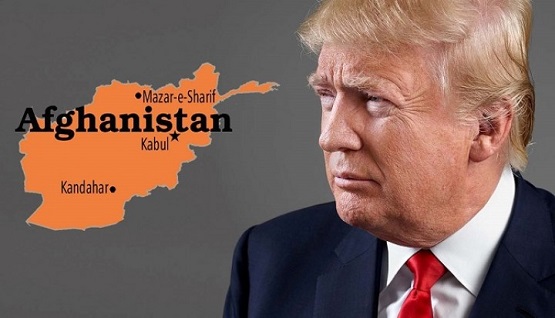The American President Donald Trump has recently unveiled his latest stances on Afghanistan during a meeting with the members of the United Nations Security Council hosted by the White House.
Trump told his guests that the US will not take part in any future negotiations with the Taliban. Beside rejecting prospective dialogue with the militant group in Afghanistan, the American leader also claimed that his government will do more to end the stalemate of the Washington’s longest war.
Washington’s stance-shift a blow to peace talks
Trump’s rejection of negotiations with the Taliban is apparently displaying a shift in the US previous position that supported peace talks between the insurgents and the Central government. The US Secretary of State Rex Tillerson in August last year said that political solution with the Taliban was not unlikely after over a decade of the military campaign in the war-ravaged country. Tillerson said that the US will support unconditional peace dialogue.
Nikki Hailey, the US envoy to the UN, who is known as a hardline diplomat in the Trump administration, visited Afghanistan in early January. After returning home, she told the media that Washington’s Afghanistan policy has moved to supporting the talks and peace of Kabul with the Taliban.
However, Trump contradicted his secretary of state and UN envoy’s stances by saying that he is not for the Kabul-Taliban negotiations. Regarding US new policy, it is not a surprise if Washington is labeled the hurdle ahead of the peace process in Afghanistan.
Trump war strategy already wiping out prospects of peace
Despite the fact that Trump has just openly come against any discussion of an end of violence with the insurgent group, the reality is that way before now the peace talks had been killed. The death of the peace process was noticeable when in August 2017, the American president unveiled his new strategy on Afghanistan war, saying that he will increase the number of the troops operating in Afghanistan and that they will stay in Afghanistan until an uncertain time. The new strategy marked an end of Afghanistan’s domestic peace efforts because the Taliban have always tied coming to the negotiating table to the withdrawal of the foreign troops from the Afghan territories. Now, it is so natural that Trumpís announcement will frustrate peace talks as the Taliban argue they will not return to talks with the government of President Ashraf Ghani if the foreign forces are stationed longer.
Stalemate produces more insecurity
Cessation of the talks with the Taliban, largely stemming from the Trump administration’s deployment of additional troops to the Afghan regions, has begun to show its effects on the ground in Afghanistan. More suicide attacks and blasts and other types of terrorist attacks against the Afghan security forces and even the civilian places in fall and winter are almost unprecedented. The record of performance of the Taliban in over a decade shows that usually fall and winter mark the nadir of the terror actions of the militant group against the foreigners and the government, but in this year’s fall and winter, the terrorist attacks unprecedentedly surged across Afghanistan. The volatile situation in various Afghan cities and even Kabul the capital is only comparable to the first year of occupation of the country.
The Afghan officials themselves acknowledge that instability in the country is now witnessing a record high level. In October 2017, Tariq Shah Bahrami, the then acting defense minister, stated that terror attacks in 2017 saw a 300 percent growth in comparison to the year before. Only Kabul in the third week of January came under 4 large-scale attacks which left over 140 people dead, a record not seen so far by the city.
The increase of insecurity came along with the increase of the American forces from 12,000 to 14,000. Even other parties such as the NATO, Qatar and Azerbaijan have sent new forces or added to their already-operating troops in Afghanistan at the behest of the US Department of Defense.
The rejuvenated wave of anti-government attacks in Afghanistan come while since early 2017, when Trump power in the US, the country’s airstrikes nearly doubled, the night-time US-backed assaults of the Afghan forces built up, and more military helicopters have been delivered to the Afghanistanian National Army.
Despite all of these reinforcements and counter-terror attacks, the 2017 security situation was much more worrisome than the year before.
This situation indicates that Trump government’s tendency to the military solution on the one hand and rejection of political settlement to end the 17-year-old war on the other side is doomed to failure. At the time being, the prospects of security and peace are dimmer than any other time.
LINK: https://www.ansarpress.com/english/9342
TAGS:































 Violation of the sovereignty and rights of afghan citizens by America
Violation of the sovereignty and rights of afghan citizens by America




